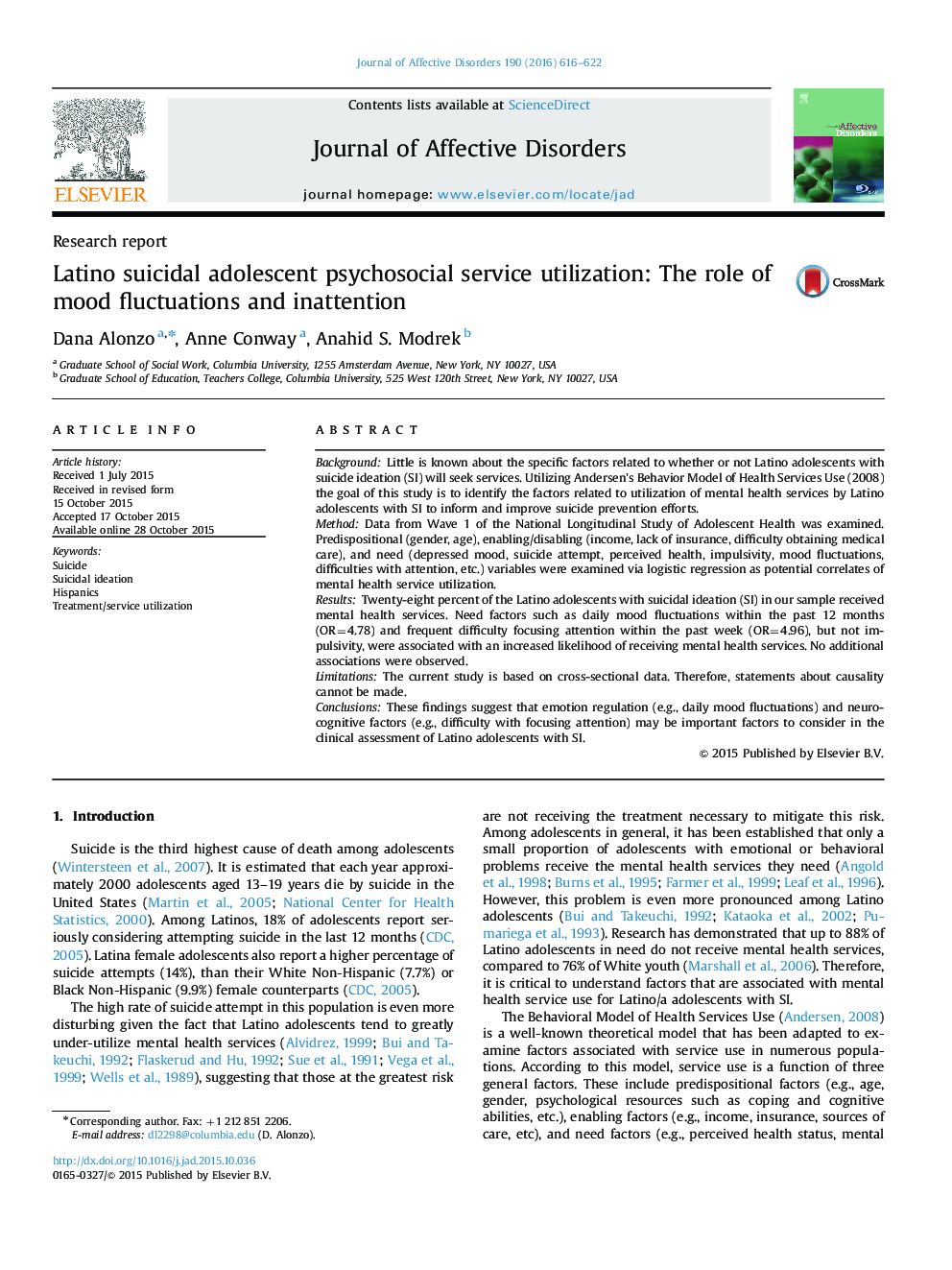| Article ID | Journal | Published Year | Pages | File Type |
|---|---|---|---|---|
| 6230798 | Journal of Affective Disorders | 2016 | 7 Pages |
â¢Few studies have focused on barriers and facilitators to mental health service use among Latino suicidal adolescents.â¢Assessments of emotional regulation and mood fluctuation difficulties are important for early risk identification and service utilization.â¢Difficulties focusing attention were associated with likelihood of receiving mental health services.â¢Impulsivity did not predict mental health service use.â¢Severity of symptomatology (greater degree of depression, lower perceived health status, or prior suicide attempt) was not associated with the likelihood of Latino adolescents with suicidal ideation receiving mental health treatment.
BackgroundLittle is known about the specific factors related to whether or not Latino adolescents with suicide ideation (SI) will seek services. Utilizing Andersen's Behavior Model of Health Services Use (2008) the goal of this study is to identify the factors related to utilization of mental health services by Latino adolescents with SI to inform and improve suicide prevention efforts.MethodData from Wave 1 of the National Longitudinal Study of Adolescent Health was examined. Predispositional (gender, age), enabling/disabling (income, lack of insurance, difficulty obtaining medical care), and need (depressed mood, suicide attempt, perceived health, impulsivity, mood fluctuations, difficulties with attention, etc.) variables were examined via logistic regression as potential correlates of mental health service utilization.ResultsTwenty-eight percent of the Latino adolescents with suicidal ideation (SI) in our sample received mental health services. Need factors such as daily mood fluctuations within the past 12 months (OR=4.78) and frequent difficulty focusing attention within the past week (OR=4.96), but not impulsivity, were associated with an increased likelihood of receiving mental health services. No additional associations were observed.LimitationsThe current study is based on cross-sectional data. Therefore, statements about causality cannot be made.ConclusionsThese findings suggest that emotion regulation (e.g., daily mood fluctuations) and neurocognitive factors (e.g., difficulty with focusing attention) may be important factors to consider in the clinical assessment of Latino adolescents with SI.
